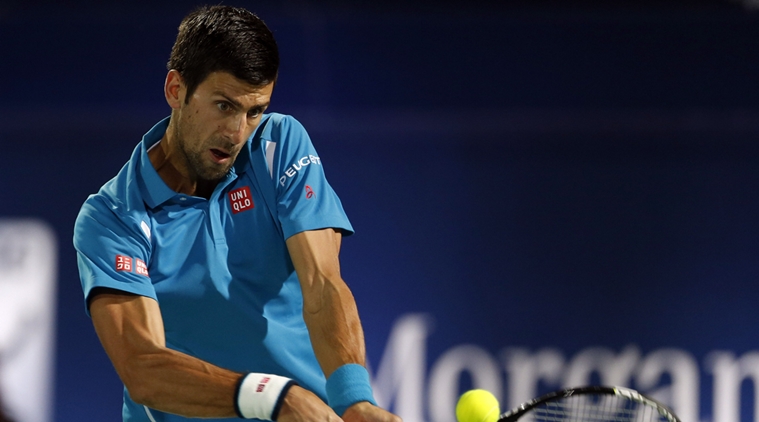
It was at Roland Garros a year ago that Novak Djokovic became only the third male tennis player to hold all four major titles at once – a feat last managed by Australia’s Rod Laver in 1969 – and the first ever to do so on three different surfaces.
That the 30-year-old Serbian should exit at the quarter-finals of this year’s French Open, given the faltering form he has shown ever since that high point, was not a surprise, especially as he was facing the rising force of Austria’s 23-year-old sixth seed Dominic Thiem.
But once the balance of the match tipped following an opening set in which Djokovic had established a 4-2 lead, the manner in which his challenge faltered and then ceased, in a final set which he lost 6-0, was shocking.
It was not so much the third set scoreline – one he had not endured in any competition since 2005 – but the image he presented as he went through the motions of competition.
Tennis is a world away from boxing, but in terms of its personal drama in a confined and unforgiving space it often has something of the fistic sport’s brutal intensity. And as the former world number one headed for defeat on Suzanne Lenglen Court his eyes were those of a shot fighter going through the motions.
The 12-times Grand Slam winner referred to “personal issues” after his third round exit at last year’s Wimbledon, and has since had injury problems. Djokovic parted company with his coach Boris Becker at the end of last year and last month severed his connection with the rest of his team, including long-time friend Marian Vajda.
For the first week of Roland Garros he was consulting another man with four different Grand Slams to his credit, Andre Agassi, but the latter returned to the United States at the weekend.
That other noted multiple Grand Slam winner John McEnroe, told BBC Sport that he found Djokovic’s capitulation “inexplicable”, adding: “he basically gave up. It looked in the third set like he just didn’t want to be out there, couldn’t compete any more, and that’s shocking for a guy that’s won as much as he has and prides himself on competition. It just shows you everyone’s human.”
Did he give up? On the day it almost seemed, as with Philip Larkin and poetry, that tennis gave him up.
Two things to be said here though. Although Djokovic may have left the building, in spirit, some time before the end of the match, he saw it through to the very bitter end. No sudden retirements injured for him.
Second thing – typically, afterwards, he fronted up. “For me, it’s a whole new situation that I’m facing,” the Serb told the press.
“Especially in the last seven, eight months, not winning any tournament, which hasn’t happened in many years.
“I guess you’ve got to go through it, try to learn your lessons and figure out how to get out of it stronger.
“It’s a big challenge, but I’m up for it.”
Will Djokovic respond to this big challenge? If he wants inspiration, he need only look at the way Roger Federer, idolized and then patronized by some media observers, re-forged his winning spirit aged 35 to win at the Australian Open this year, claiming a historic 18th Grand Slam title after a five-year gap.
But there was no dramatic fall for Federer as there was for Djokovic in Paris.
To see someone of such talent drop away so dramatically is disturbing. It recalls the fall from the golfing heights by Tiger Woods, or, in team terms, the 7-1 thrashing Brazil endured at the hands – or rather feet – of Germany in their home FIFA World Cup semi-final three years ago.
Eleven years ago I sat with Djokovic’s parents, Srdjan and Dijana, and his youngest brother Djordje, as he reached the third round at Wimbledon by disposing of Spain’s 11th seed, Tommy Robredo, in straight sets.
His mother alternately chewed at her finger and clenched her fist in the air. Father Srdjan chewed his gum so rapidly that he might have been appearing on sped-up film. Meanwhile 10-year-old Djordje offered fierce tactical advice from under his red baseball cap.
Afterwards, Dijana, chic and tanned, settled back in her chair as the head settled on her Guinness in one of the court-side bars. “It is my favorite,” she said with a smile that had barely left her face since seeing her boy – the youngest in the draw at just 19 years and one month – march on.
For all his years of experience, for all his bold and dramatic successes at Wimbledon and the Open tournaments of Australia, France and the US, Djokovic at 30 is missing something now that he had back then: an unquestioning, uncompromising, irresistible upward trajectory. Resuming that will probably represent the biggest challenge of his career.
By Mike Rowbottom
Republished with permission from insidethegames.biz.